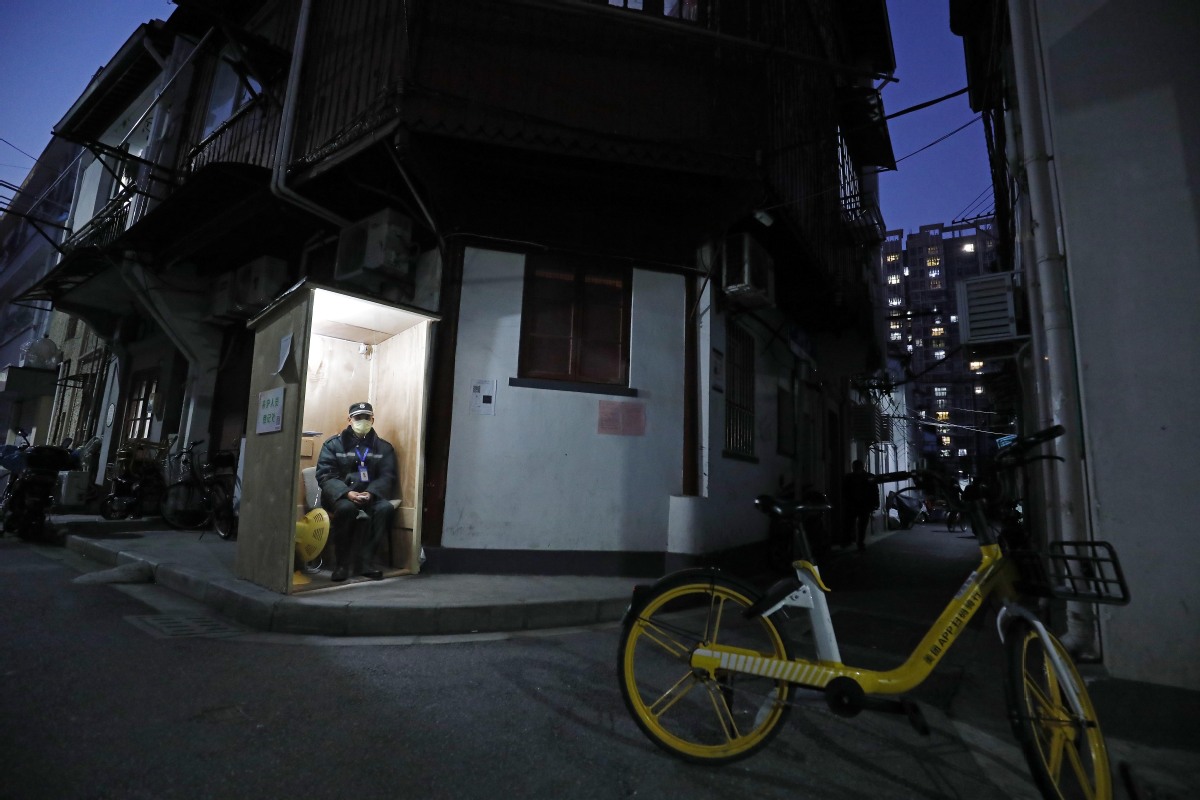Community guards ensure residents' safety


Understaffed
Wang comes from Handan, Hebei province. The 36-year-old started working in the community in July 2016. Since early January, his phone has been turned on 24 hours a day so he won't miss any calls from residents or colleagues.
Originally, there were 19 guards in Wang's community, but eight went home in February and haven't yet returned. The lack of manpower means Wang, who lives in a company dormitory in the community, spends almost the whole day on duty at the gate.
"In addition to the checking and testing work at the gate, we guards need to undertake more regular community patrols and checks than before," he said.
The community is home to more than 2,000 people. At the peak of the outbreak, fewer people entered or left the compound, but as a growing number venture outside and migrant workers begin returning to Beijing, each guard may interact with about 900 people a day.
The heavy workload and lack of virus-related training meant some of Wang's colleagues were initially fearful.
They encouraged each other to overcome the fear before going on duty, and now the stress is fading.
"Of course we feel worried when we discover that some residents have coughs and sneezes, but fear will not help us. We still need to interact with people and ask about the causes of their symptoms," Wang said.
He noted that the epidemic has left both guards and residents feeling concerned, so sometimes they all need to control their nerves.
Some seniors in Wang's community are in poor health and they have to call an ambulance to take them to the hospital when they feel unwell.
Every time an ambulance departs, Wang and his colleagues receive dozens of phone calls from residents asking why an ambulance had been in the community and if anyone had been infected.
The guards need to explain the situation to every caller, meaning the calls can last until midnight.
Ji Pengfei, 35, also from Handan, is a security guard in Hepingcun community, which has over 6,000 residents, in Chaoyang district. His team also has a manpower shortage.
In March, one of his colleagues developed a gastric ulcer, but he insisted on continuing to work after Ji took him to the local hospital for treatment.
"He knows we are short of staff members, so if he takes time off his colleagues will have to work his shifts," Ji said.
The guards in Ji's community work two shifts at the gate over a 24-hour period, and each one checks more than 1,200 people a day.
As team leader, Ji is on 24-hour call. He has lived in the community's dorm since he started working there in October 2017.
























